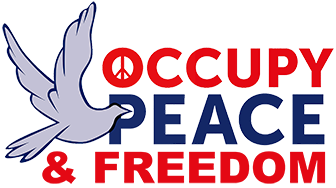New START is the last nuclear arms control treaty between the US and Russia, which is set to expire in 2026
by Dave DeCamp Posted on
A senior Biden administration official told The New York Times that “right now it’s almost impossible to imagine” the US and Russia negotiating a replacement for New START — the last remaining arms control treaty between the two powers — before it expires.
New START limits the number of missiles, bombers, and warheads the US and Russia can have deployed. President Biden and Russian President Vladimir Putin agreed to extend the treaty for five years back in January 2021. US and Russian officials had held arms control talks since then, but they fell apart after Russia invaded Ukraine.
The US cut off arms control talks with Russia after the February 24 invasion. Russian officials have said they are open to resuming them, but the Biden administration appears to have abandoned diplomacy with Russia altogether. Biden has shown no interest in speaking with Putin, and Secretary of State Antony Blinken hasn’t talked with Russian Foreign Minister Sergey Lavrov Since February 15.
The state of arms control agreements between the US and Russia has looked bleak in recent years. In 2019, the Trump administration withdrew from the Intermediate-Range Nuclear Forces (INF) Treaty, which banned land-based short and medium-range ballistic missiles. The US withdrew from the INF over alleged Russian violations, but little was done to try to rectify the issues.
The Trump administration also pulled out of the Open Skies treaty in 2020, which allowed unarmed surveillance flights over participating countries. Russia tried to salvage Open Skies and hoped the Biden administration would return to the treaty. But the Biden administration told Russia it wouldn’t rejoin Open Skies, and Moscow later withdrew.
The lack of arms control between the world’s largest nuclear powers likely means the US will follow through on its plan to modernize each triad of its nuclear arsenal, which could cost up to $1.5 trillion. As of September 2020, the US nuclear stockpile consists of about 5,750 warheads, including 3,750 active warheads and 2,000 retired ones. Russia’s nuclear stockpile is estimated to be about 6,200 warheads. Together, the two powers possess roughly 90% of the world’s nuclear weapons.


Recent Comments